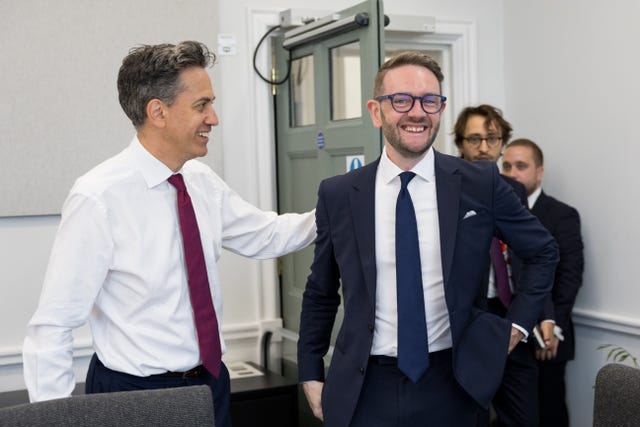Ed Miliband has said he wants to launch a “solar rooftop revolution” as he takes steps to boost the UK’s solar energy capacity.
The new Energy Secretary has relaunched the Solar Taskforce with the aim of tripling the amount of energy the panels generate in the UK.
He also wants to overhaul planning rules to emphasise the importance of solar to new buildings.
The moves come after Mr Miliband gave approval on Friday evening to three huge solar farms, which together could generate 1.3 gigawatts, powering the equivalent of 400,000 homes a year.
“I want to unleash a UK solar rooftop revolution,” Mr Miliband said.
He added: “We will encourage builders and homeowners in whatever way we can to deliver this win-win technology to millions of addresses in the UK so people can provide their own electricity, cut their bills and at the same time help fight climate change.”
The relaunched Solar Taskforce will bring together industry experts and Government with the aim of tripling solar power by 2030.

The Energy Secretary will also consult on extra measures in the National Planning Policy Framework which highlight the importance of solar power, and updated building standards due to be put in place next year will have a similar aim.
On Friday, Mr Miliband approved three major solar power projects – Gate Burton in Lincolnshire, Mallard Pass on the Rutland/Lincolnshire border, and Sunnica in Suffolk.
The Department of Energy Security and Neto Zero estimates that Sunnica alone could create 1,500 construction jobs, which it says will contribute towards the Government’s growth mission.
But the solar farm’s approval has been met with criticism from Nick Timothy, the new Conservative MP for West Suffolk.
He described it as “appalling and an insult to all the communities it affects”, and claimed there are concerns about “the safety of the battery energy storage system” planned for the site.
Meanwhile, shadow energy secretary Claire Coutinho said: “It’s clear that Ed Miliband has more interest in listening to the demands of Just Stop Oil than the needs of rural communities, even going as far as to overrule an expert examining authority to impose a large-scale solar farm in one case.
“Climate policy cannot come at the expense of struggling families, or the nation’s food or economic security, or it will fail.”













